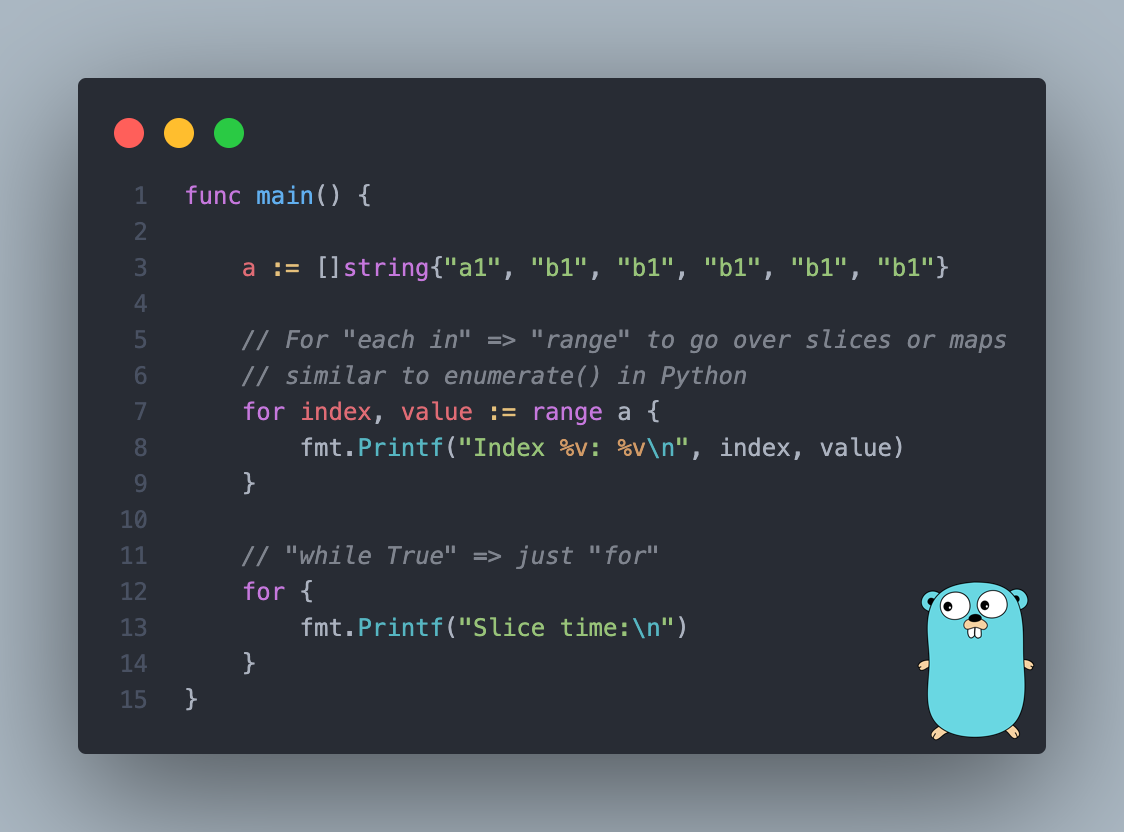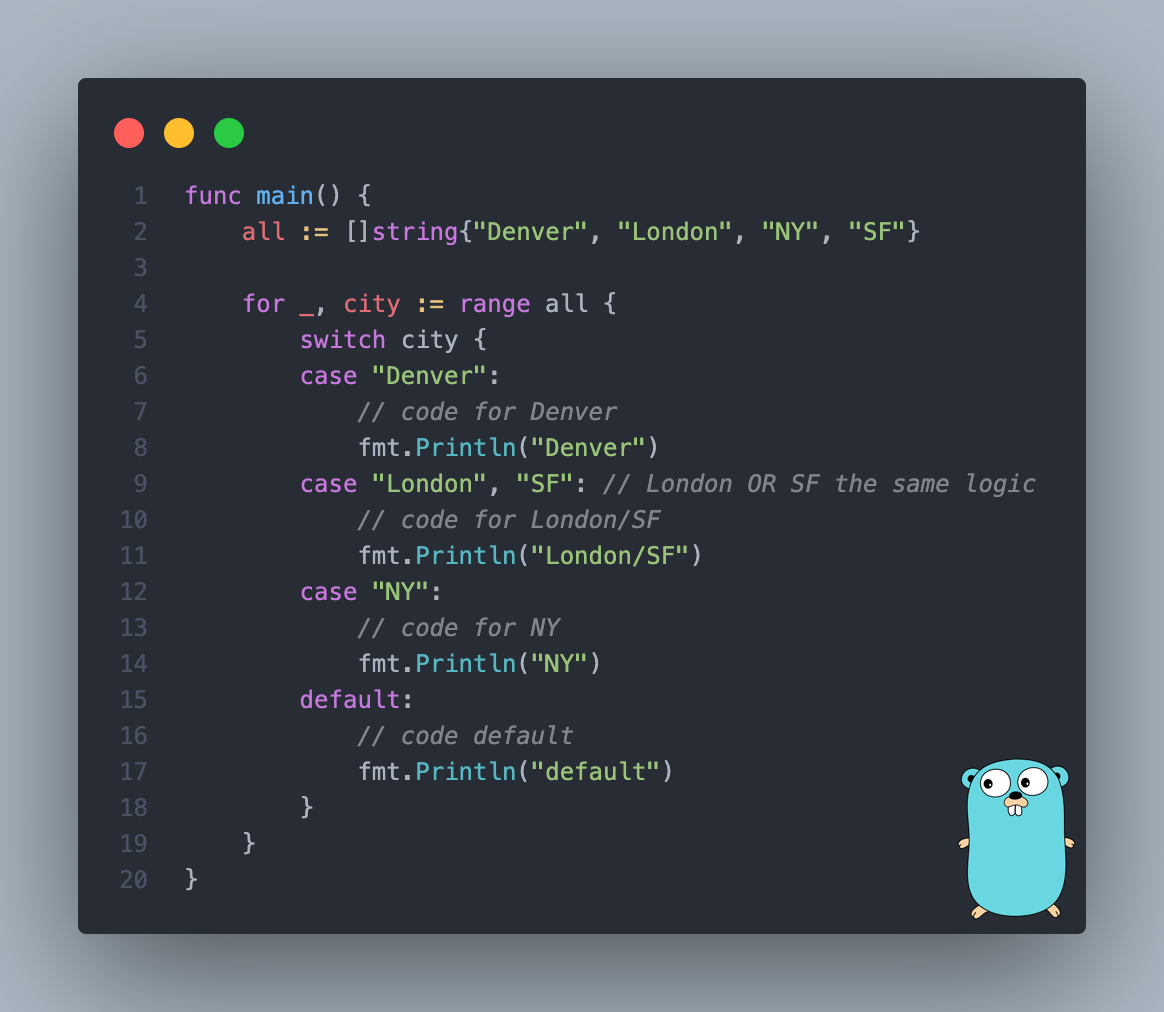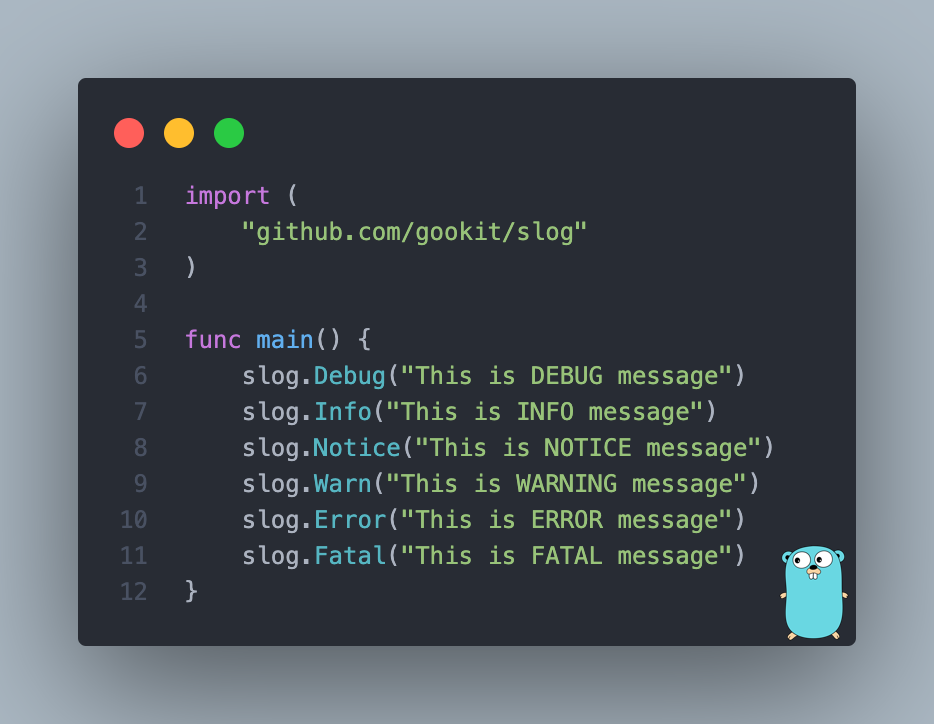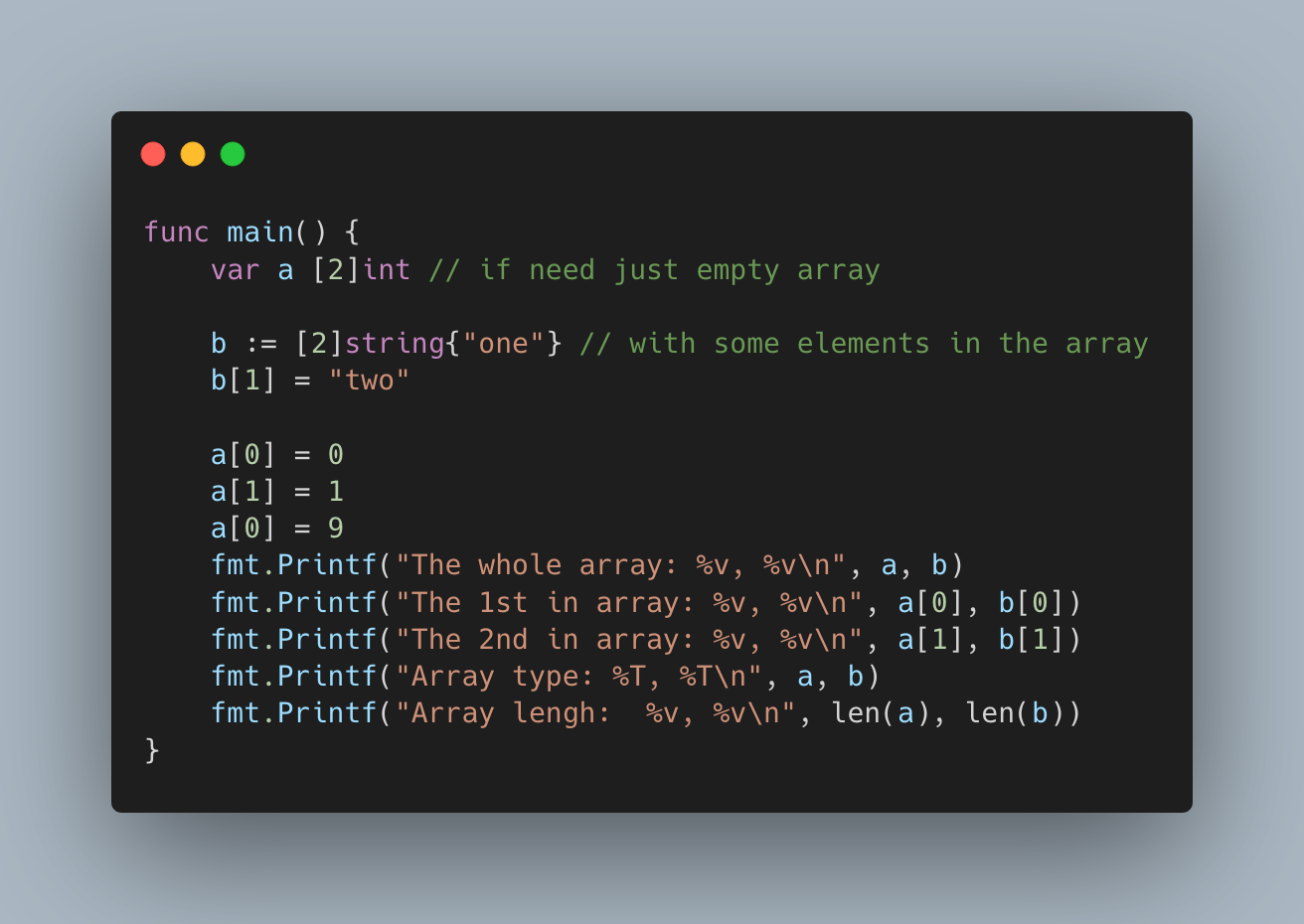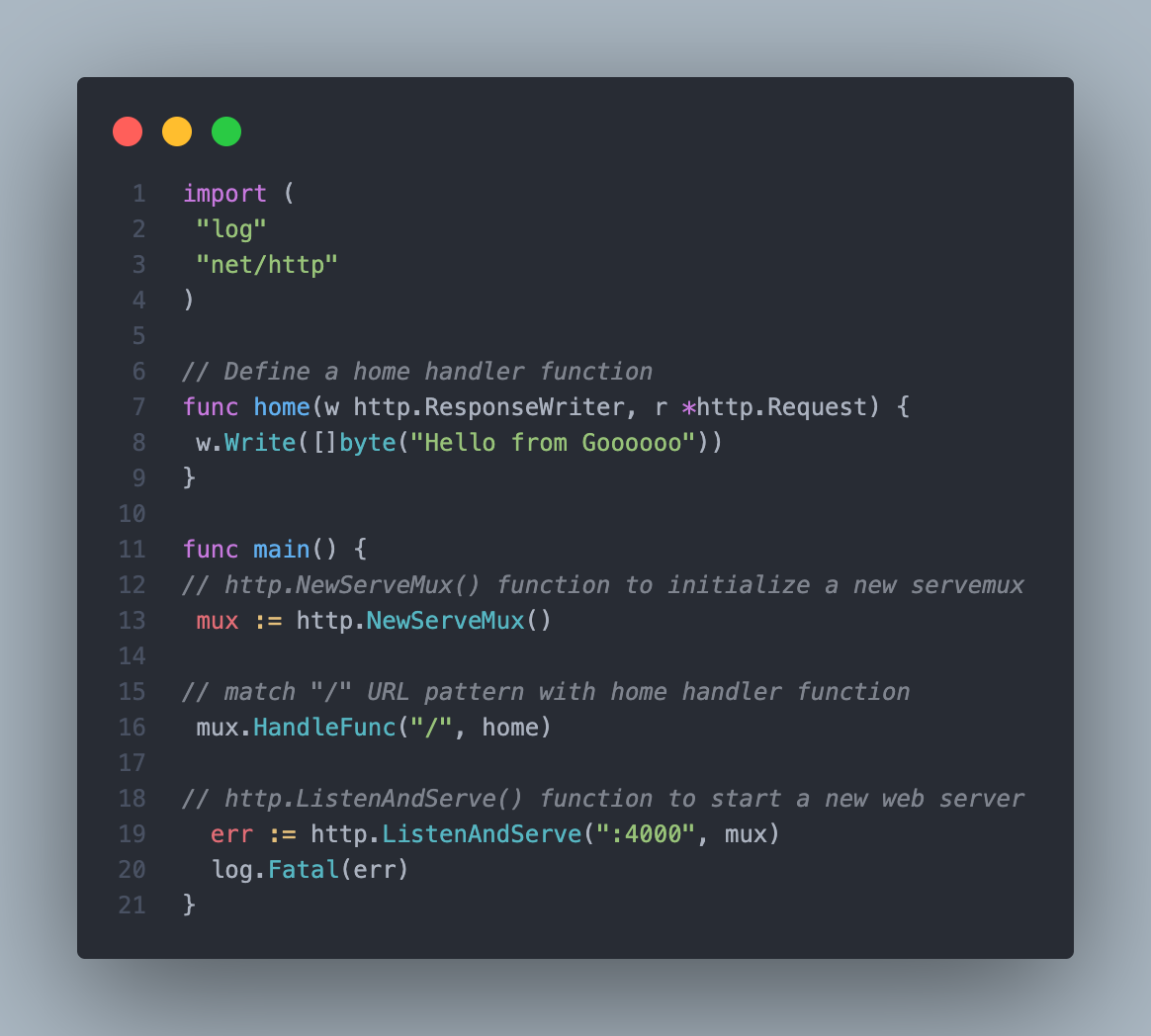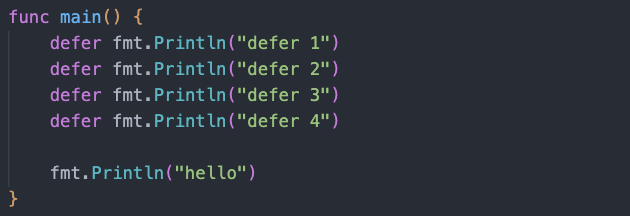
Go Defer
The function is waiting until the surrounding function returns. Note: the deferred call’s arguments are evaluated immediately, but executed at the end func main() { defer fmt.Println("defer 1") fmt.Println("hello") } sh-3.2$ go run switch.go hello defer 1 We can stack deferred function calls - calls are executed in last-in-first-out order. Useful when something needs to be done at the end of the function. sh-3.2$ go run switch.go hello defer 4 defer 3 defer 2 defer 1 Nice blog about Defer, Panic and Recover....
